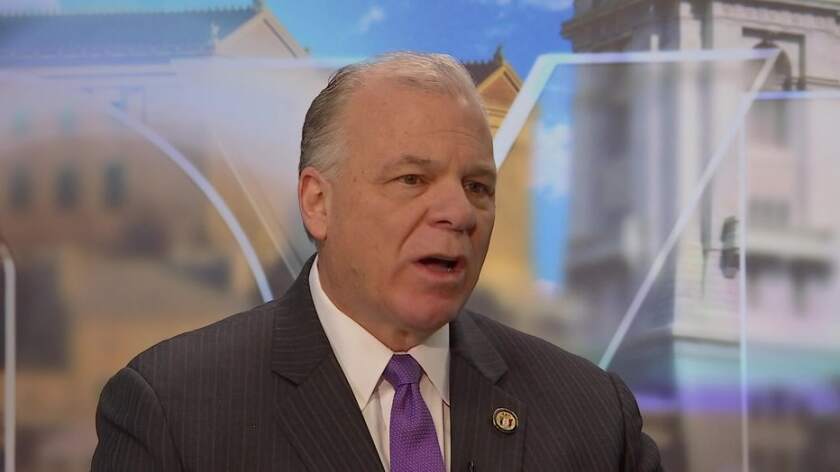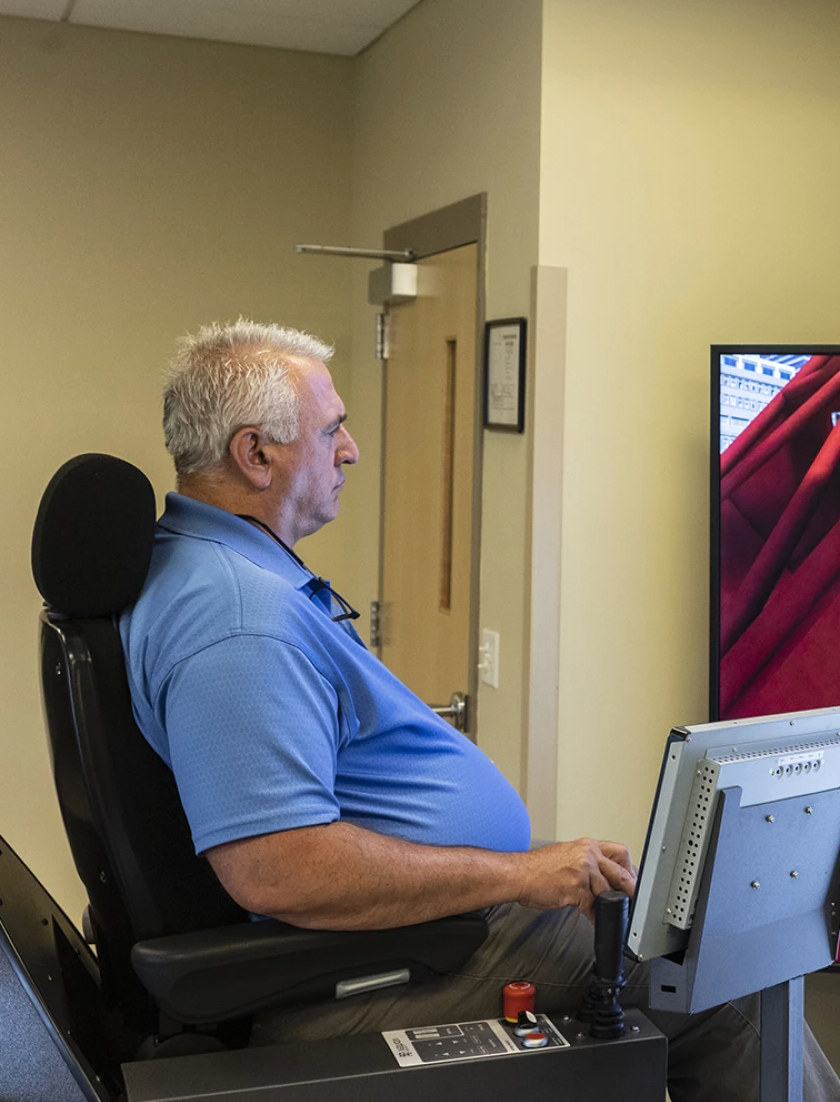
Tim Hawk/NJ Advance Media for NJ.com
Media coverage largely focused on the election as a wakeup call for the national Democratic Party, which saw defeats in the Virginia gubernatorial contest and a host of down-ballot races. But in New Jersey, the results were unusual in that Murphy actually won re-election, even though a president of his party took the White House the year before.
“There’s a pattern where the president’s party almost always does poorly in these off-year elections,” says Alan Abramowitz, professor of political science at Emory University. “In New Jersey, this is the first time a Democrat has actually won by any margin [under these circumstances in decades].”
Republican strength in these elections was to be expected — a dog-bites-man story. But Murphy’s win is actually unusual, historically, and demonstrates that the Democratic Party’s advantage in New Jersey is firmer than it was in 2009. (Before the election, most every article made sure to note that no Democratic governor had won re-election in the state since the 1970s.)
With the Democrats retaining a total lock on power in Trenton, different factions within the party’s coalition are trying to maneuver the available facts to advance their policy goals.
Both moderates and liberals argue that their preferred agenda was proven by Tuesday’s results. But political scientists say that national conditions tend to override local factors, so whatever Murphy does will have little effect on future political outcomes. Instead, its more about which camp can better use electability as a cudgel to convince him that their perspective is conventional wisdom.
Murphy and the Machine
“Politicians like Murphy have a broad zone of acceptable things that they could focus on that are unlikely in themselves to generate much electoral kickback, positive or negative,” says Daniel Hopkins, professor of political science at the University of Pennsylvania. “[So] these different democratic factions are arguing to advance their preferred agendas and their priorities.”
For the moderate-to-conservative wing of the party, and especially the South Jersey Democratic machine led by regional power broker George Norcross, last Tuesday’s outcome is grim. Despite an overwhelming cash advantage, Senate President Steve Sweeney lost to a trucker with no political experience or backing from the Republican Party in Trenton.

“The South Jersey districts have a lot of rural space down there, a lot of farm country,” says Greg Lalevee, business manager of New Jersey’s Operating Engineers Local 825. “Sweeney’s district is in Salem County. Outside of the nuke plant, that’s pretty much farmlands. That’s not Democratic demographics.”

(David Kidd/ Governing)
More moderate Democrats, and their allies, say that Murphy’s low single-digit victory in a state Biden won by 16 points is evidence that the Democrats have become too left-wing.
“When the Senate president up here loses it’s pretty significant,” says Lalevee, whose union is influential with both political parties. “His district said there were certain things you were doing that we approved of and rode along with you on, but then you let the progressive agenda go too far. They wanted to have a check on the Democrats.”
Lalevee sees the state’s electorate as mostly being in the center, and only willing to go so far left or right. That’s why Trump performs poorly in New Jersey, Lalevee says, and why Murphy didn’t win by the commanding margin found in many pre-election polls.
Like other more moderate voices in the Democratic coalition, Lalevee argues Murphy needs to govern firmly from the center, and that New Jersey legislators next year won’t support “anything that might not be considered mainstream.”
Fraught Relations to Left
The liberal-to-left wing of the party does not agree with that interpretation. The South Jersey Democrats, along with Sweeney and Norcross, have had a fraught relationship with Murphy. With a new Senate president from North Jersey looking likely, and the moderate wing weakened, there is an opportunity to build on Murphy’s already substantial liberal policy wins.
“The governor prevailed in what was a very difficult year for Democrats across the country, and he won touting a progressive agenda,” says Sue Altman, executive director of the New Jersey Working Families Party.
In his first term, Murphy passed a suite of policies that would make most progressives in Congress envious. He enacted a tax on millionaires, raised the minimum wage to $15 an hour, legalized recreational marijuana, signed a paid sick leave law and expanded paid family leave.
“The senate president lost and he’s a strong centrist and obstructionist to that agenda,” says Altman, whose organization is backed by the state’s more left-wing labor unions. “That’s a clear message that progressivism still has a lot of kick to it. That’s what the Democratic Party should be orienting itself towards.”
Altman argues that the Democrats in South Jersey needs to rejuvenate themselves, that their elected officials are too rarely tested by competitive primaries and that politicians like Sweeney could have done better if they had “modernized.”
In the Eye of the Beholder
Both factions within the party, and the interest groups that seek to influence them, see what they want to see in last week’s results. Centrists like Lalevee say that more liberal choices, likecampaigning with Bernie Sanders, hurt Murphy. Progressives like Altman say the governor relied too heavily on the county party apparatuses and the more conservative building trades.
Political scientists say that, on the whole, such questions of political tactics are given outsized importance by those on the ground.
“I really don’t think those things made any difference,” says Abramowitz. “The results were very nationalized. The candidates and the campaigns had very marginal effects on the outcome.”
As state and local electoral outcomes have become more contingent upon national politics, cyclical partisan voter backlash against the party in power in D.C. is the norm. Biden’s sinking approval rating and the weirdness of the pandemic-battered economy were actually the deciding factors.
Victory on the Margins
But there is an argument that there are voters to be won on the margins, and that margins are where many victories lie these days. The question is how to activate them.
There does not seem to be evidence that there is a large reserve army of more left-wing voters waiting to be inspired, especially in districts like the one Sweeney represents. There are a small number of swing voters, however. While vastly reduced in number since the 1980s, they can still be decisive in today’s often-tight elections. Despite their conservative cultural politics, economically progressive policies appear to be popular among their ranks.
In this muddled field, both sides could make strong arguments for using the race to advance their ideological and policy goals. The question is who will Murphy listen to?
His campaign largely skirted major policy ideas, running instead on his accomplishments. The two more concrete policies he highlighted were a law strengthening the right to abortion access, which is under unprecedented assault elsewhere in the country, and an effort to beef up gun regulations.
Beyond that, Murphy’s priorities in his second term are movable. Political scientists argue that the governor and his Democratic legislative majorities have a fair amount of freedom to decide which policy path to pursue, and that this contest between political elites will be more determinative of the policy outcomes than the election results itself.
“At the state level, political science on the link between specific policies and subsequent electoral success is limited,” says Hopkins. “If in four years, Democrats find themselves running in the first year of President Trump’s second term that’s going to dwarf the specific policy decisions they now face.”
Related Articles












